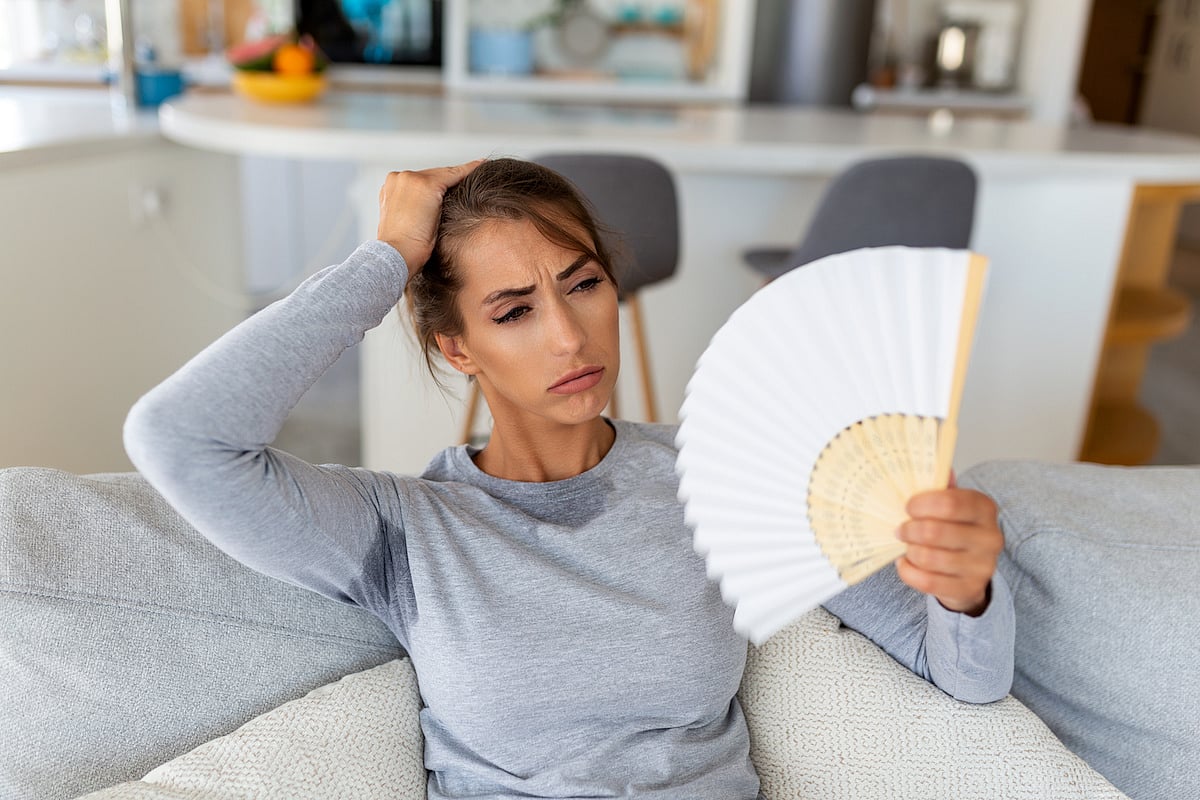Manténgase sano!

- Robin Foster
- Posted August 11, 2024
How Excessive Heat Can Affect Your Mental Health
As Americans sweat through another scorching summer, one expert warns that while extreme heat can cause physical harm it can also wreak havoc with your mental health.
Sizzling temperatures can make anyone irritable, but it can be far worse for some, especially those with mental health conditions, said Dr. Asim Shah, executive vice chair in the Menninger Department of Psychiatry and Behavioral Sciences at Baylor College of Medicine in Houston.
Excessive heat can trigger feelings of anger, irritability, aggression, discomfort, stress and fatigue because of its impact on serotonin, the neurotransmitter that regulates your sleep, mood and behaviors, Shah noted.
The most vulnerable groups include people with preexisting mental health conditions and people who abuse alcohol or other drugs.
“All mental illnesses increase with heat because it results in more fatigue, irritability and anxiety, and it can exacerbate depressive episodes,†Shah explained in a Baylor news release.
What are the signs of impending trouble? They tend to start with irritability, decreased motivation, aggressive behavior and sometimes mental fogging. In worse cases, confusion and disorientation occur, Shah noted.
While avoiding the heat may not be possible, Shah recommends hydrating and keeping your head covered when going outside. If it gets too hot, pour some water on your head to cool down and try doing things in the shade. If you normally go for walks outside, try walking in the mall or a large space with air conditioning.
If you take medications, consult with your provider because some medications for mental health, such as lithium for bipolar patients, don't pair well with heat. Lithium goes through the kidney, so sweating can have an impact on the levels of the medication in your body, Shah explained.
“If you are out in the heat and using lithium, levels may fluctuate. In that scenario, we have to be very careful and either adjust the dosage of lithium or avoid heat,†he noted.
Droughts and extreme changes in temperature can also increase levels of pollutants and allergens as air quality worsens. That can exacerbate mental health issues like depression, anxiety or PTSD. Some studies show that exposure to any natural climate disaster can raise the risk of depression by more than 30%, anxiety by 70% and both by over 87%, Shah said.
Kids are not immune to the effects of intense heat, either.
“Children are a vulnerable population due to their physical and cognitive immaturity. They are exposed to more pollutants and allergens as they spend more time outdoors,†Shah noted.
If you feel affected by severe heat, call your doctor or mental health specialist.
More information
The American Psychological Association has more on heat and mental health.
SOURCE: Baylor College of Medicine, news release, July 24, 2024





